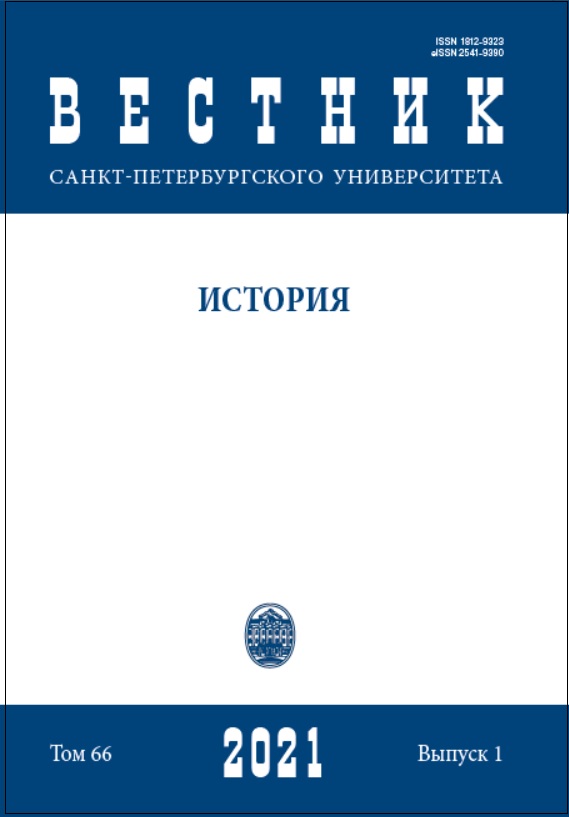Незамеченный дворцовый переворот
DOI:
https://doi.org/10.21638/spbu02.2021.105Аннотация
Статья посвящена истории возникновения и развития политического кризиса междуцарствия. Центральный вопрос статьи — по какой причине Николай, получив известие о смерти Александра, решил принести присягу Константину. Анализ историографии показывает, что в литературе представлены самые противоположные интерпретации этого события: Николай действовал под давлением М. А. Милорадовича и/или Марии Федоровны, совместно с генерал-губернатором и/или императрицей-матерью. Важным аспектом работы является исследование нормативной составляющей проблемы престолонаследия. Показано, что к ноябрю 1825 года сложилась необычная ситуация: по закону наследник — Константин, по семейному соглашению — Николай. В статье с опорой на источники доказывается, что манифест Александра I о передаче престола Николая являлся образцом сепаратного семейного права и никогда не должен был быть опубликован. На основе широкого перечня материалов (документов делопроизводства государственных органов, мемуаров и писем участников событий, допросов декабристов на следствии, депеш и сообщений иностранных послов, находящихся в Санкт-Петербурге) реконструируется ход совещаний 25 ноября, описываются особенности принесения присяги 27 ноября и выявляется обусловленное этими событиями направление развития династического кризиса. Ключевыми из перечисленных выше источников, связанных с упомянутыми обстоятельствами, можно считать донесения австрийского посланника Л. Лебцельтерна и испанского представителя Паеса де ла Кадена, ранее не использовавшиеся исследователями при анализе событий 1825 года. Отмечено, что у Николая был сложный план захвата власти, включающий в себя объединение с представителями генералитета и высшей бюрократии, присягу, в нарушение сложившейся традиции, в пользу Константина, давление на старшего брата и, в конечном счете — провозглашение императором. Подчеркивается решающая роль петербургского генерал-губернатора М. А. Милорадовича как ключевого сторонника и «сообщника» молодого великого князя. Застрагивается вопрос о слухах, присутствующих в петербургском обществе, связанных с отделением Польши и гипотетическим убийством Константина.
Ключевые слова:
декабристы, движение декабристов, Николай I, великий князь Константин Павлович, М. А. Милорадович, заговор, присяга
Скачивания
Библиографические ссылки
Загрузки
Опубликован
Как цитировать
Выпуск
Раздел
Лицензия
Статьи журнала «Вестник Санкт-Петербургского университета. История» находятся в открытом доступе и распространяются в соответствии с условиями Лицензионного Договора с Санкт-Петербургским государственным университетом, который бесплатно предоставляет авторам неограниченное распространение и самостоятельное архивирование.





